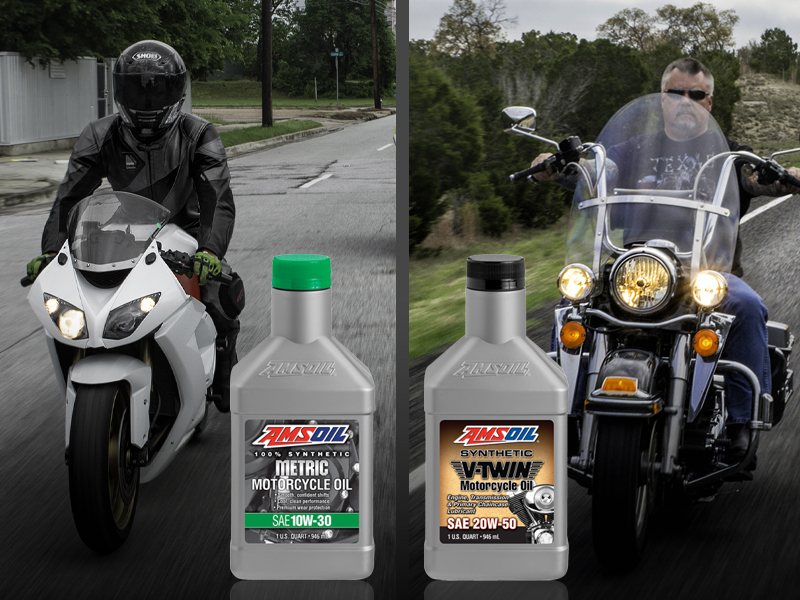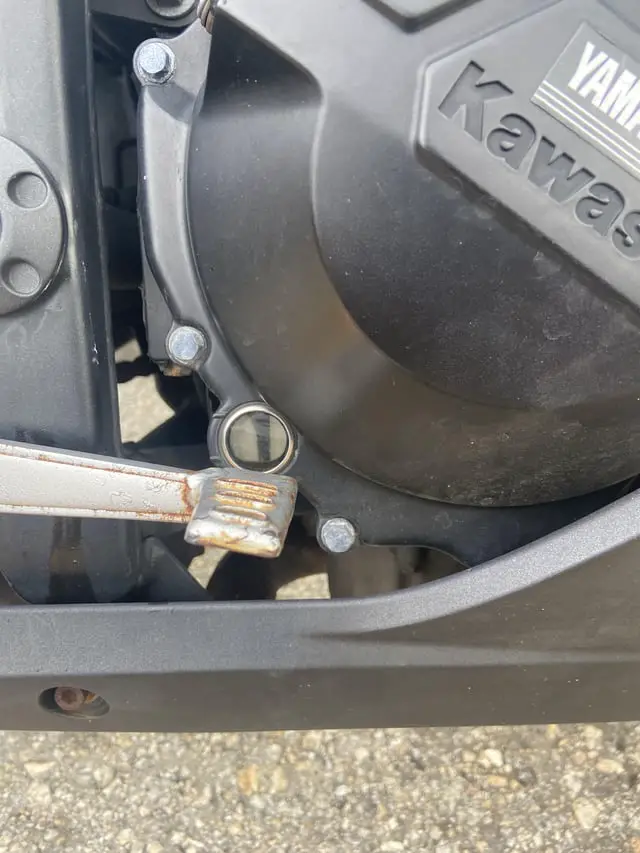Motorcycle oil and car oil are designed with different additive packages. The distinctions address varying performance requirements of motorcycle engines.
Motorcycle engines often run hotter and at higher RPMs than car engines, necessitating oil that can withstand extreme conditions. The oil for motorcycles must also cater to the unique needs of bike gearboxes and wet clutches, features typically not present in cars.
This necessitates a more robust oil formula with higher shear stability to prevent viscosity breakdown. Motorcyclists should always use oil specifically formulated for motorcycles to ensure their engines are properly protected and running efficiently. Choosing the correct oil is crucial for maintaining engine health, performance, and longevity, highlighting the importance of understanding the differences between motorcycle and car oils.
Introduction To Engine Oils
Engine oils play a key role in protecting and cooling vehicle engines. These oils provide a slippery barrier between moving parts. This barrier reduces wear and controls heat build-up. Motorcycle oil and car oil have different needs. These needs lead to formulation differences.
Early engine oils were very simple. Science has changed the way we protect engines. Through the years, oils have become more complex. Engineers design them for specific vehicle types. Thus, the historical evolution of these oils matters.
Oil quality can affect a vehicle’s lifespan and performance. The right oil keeps engines running smoothly. Choosing oil wisely means better fuel efficiency and engine health. We now understand how crucial it is for a vehicle’s overall function.
Fundamentals Of Motorcycle Oil
Motorcycle oil has a unique composition tailored to bike engines. Its properties must meet specific demands, with high RPMs and temperatures. Motorcycle-specific additives play a crucial role. They protect against corrosion, help with engine cleanliness, and ensure wet clutch performance.
The viscosity rating of motorcycle oil is critical. It indicates the fluid’s thickness. Thicker oil can handle high temperatures better. Motorcycle oils often have higher viscosity ratings than car oils. This is due to the intense heat bikes generate.
Motorcycle engine design affects oil requirements significantly. Bikes often combine the engine and gearbox. This design needs a robust oil that can handle diverse tasks. Bike oils cater to these complex needs.
Car Oil Characteristics
Car oil is specially made for cars only. It has certain ingredients not found in motorcycle oil. These ingredients are called additives. Their job is to make sure the car engine runs smoothly. For example, detergents in car oil clean the engine. Others stop rust and foam from hurting the engine. Many car oils have friction modifiers. They help car parts move without too much rubbing.
Viscosity ratings tell how thick or thin the oil is. Car oil can be thick or thin, depending on the weather. Thick oils are good for hot weather. Thin oils are best for cold weather. Car engines work differently than motorcycle engines. Because of this, car oils meet specific standards. The standards have names like 5W-30 or 10W-40. These names help people choose the right oil for their car.

Credit: ridewithpeaks.com
Comparative Analysis
Motorcycle oil and car oil are designed for different purposes. The viscosity and temperature operating ranges vary significantly. Motorcycle engines often run hotter and therefore require oil that can maintain optimal viscosity at higher temperatures.
Regarding additives, motorcycle oil contains specific ones to protect the engine’s unique components. Car oils may have similar additives, but their role and difference in function cater to the less strenuous demands of car engines.
The shear stability challenge is more critical in motorcycles. Gearboxes in motorcycles share the engine oil, making shear stability a top priority. In contrast, cars have separate oils for engines and transmissions, thus shear stability isn’t as pressured.
Furthermore, many motorcycles use a wet clutch system requiring special oil qualities. Friction modifiers in car oil can disrupt the clutch function. Wet clutch compatibility is a key factor for motorcycle oils.
Practical Considerations
Motorcycle oil and car oil are not the same. Motorcycles require specific oil types for good health. Using car oil in a motorcycle can damage the engine. Vehicle-specific oils lubricate engines better and keep them running smoothly. For oil selection, always refer to the manufacturer’s recommendations. The right oil keeps your motorcycle’s performance at its peak. It also saves money on repairs and maintenance.
Oil replacement intervals differ for each vehicle. Timely oil changes are critical to engine health. Proper oil selection leads to enhanced fuel economy and a smoother ride. The economic and performance benefits are significant with the right oil. Your owner’s manual provides oil change schedules. Following these ensures longevity for your motorcycle’s engine.

Credit: www.youtube.com

Credit: blog.amsoil.com
Frequently Asked Questions Of Is Motorcycle Oil Different Than Car Oil
Can You Use Car Engine Oil In A Motorcycle?
Using car engine oil in a motorcycle is not recommended. Motorcycles require specific oils with additives for their engines, gearboxes, and clutches. Always choose motorcycle-specific oil for optimal performance and protection.
What Is The Difference Between Motorcycle Engine Oil And Car Engine Oil?
Motorcycle engine oil often has additives for clutch friction, while car engine oil typically focuses on higher temperature performance. Motorcycle oils also deal with higher revolutions per minute (RPMs) compared to car oils.
Can I Use Mobil 1 In My Motorcycle?
Yes, you can use Mobil 1 in your motorcycle if it meets the manufacturer’s oil specifications for your bike’s engine. Always check your motorcycle’s manual for recommended oil types.
Is Car Oil And Engine Oil The Same?
Yes, car oil is another term for engine oil, serving the same purpose of lubricating internal combustion engines.
Conclusion
Understanding the distinctions between motorcycle and car oil is crucial for any vehicle owner. Motorcycle oils are uniquely formulated to protect and enhance engine performance. Remember to select the appropriate oil, ensuring your vehicle’s longevity and efficiency. Always consult your manual and choose quality products for the best care of your ride.



